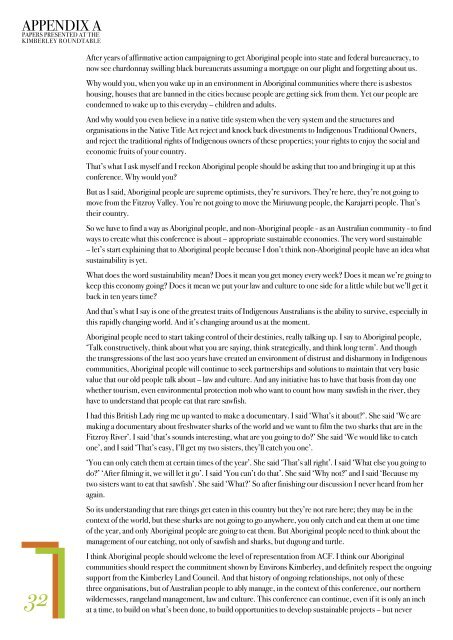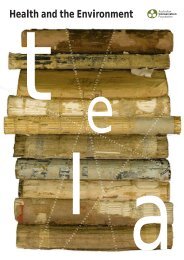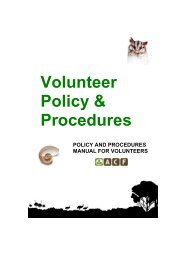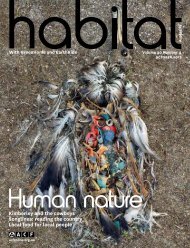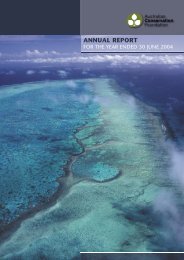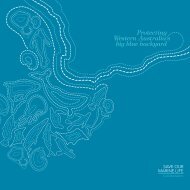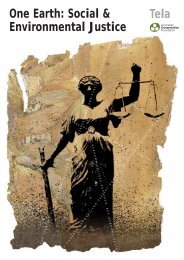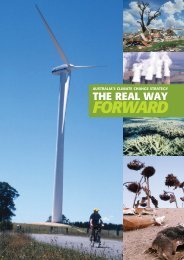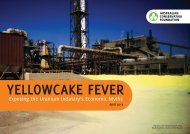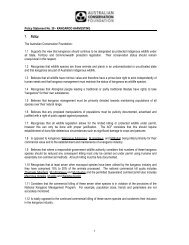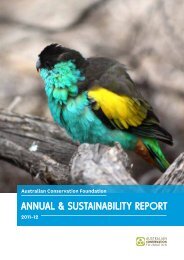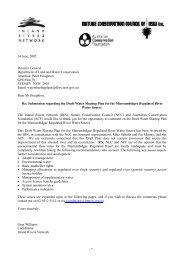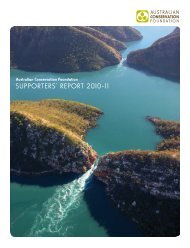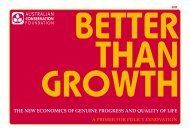Kimberley Appropriate Economics Interim Report - Australian ...
Kimberley Appropriate Economics Interim Report - Australian ...
Kimberley Appropriate Economics Interim Report - Australian ...
Create successful ePaper yourself
Turn your PDF publications into a flip-book with our unique Google optimized e-Paper software.
32<br />
After years of affirmative action campaigning to get Aboriginal people into state and federal bureaucracy, to<br />
now see chardonnay swilling black bureaucrats assuming a mortgage on our plight and forgetting about us.<br />
Why would you, when you wake up in an environment in Aboriginal communities where there is asbestos<br />
housing, houses that are banned in the cities because people are getting sick from them. Yet our people are<br />
condemned to wake up to this everyday – children and adults.<br />
And why would you even believe in a native title system when the very system and the structures and<br />
organisations in the Native Title Act reject and knock back divestments to Indigenous Traditional Owners,<br />
and reject the traditional rights of Indigenous owners of these properties; your rights to enjoy the social and<br />
economic fruits of your country.<br />
That’s what I ask myself and I reckon Aboriginal people should be asking that too and bringing it up at this<br />
conference. Why would you?<br />
But as I said, Aboriginal people are supreme optimists, they’re survivors. They’re here, they’re not going to<br />
move from the Fitzroy Valley. You’re not going to move the Miriuwung people, the Karajarri people. That’s<br />
their country.<br />
So we have to find a way as Aboriginal people, and non-Aboriginal people - as an <strong>Australian</strong> community - to find<br />
ways to create what this conference is about – appropriate sustainable economies. The very word sustainable<br />
– let’s start explaining that to Aboriginal people because I don’t think non-Aboriginal people have an idea what<br />
sustainability is yet.<br />
What does the word sustainability mean? Does it mean you get money every week? Does it mean we’re going to<br />
keep this economy going? Does it mean we put your law and culture to one side for a little while but we’ll get it<br />
back in ten years time?<br />
And that’s what I say is one of the greatest traits of Indigenous <strong>Australian</strong>s is the ability to survive, especially in<br />
this rapidly changing world. And it’s changing around us at the moment.<br />
Aboriginal people need to start taking control of their destinies, really talking up. I say to Aboriginal people,<br />
‘Talk constructively, think about what you are saying, think strategically, and think long term’. And though<br />
the transgressions of the last 200 years have created an environment of distrust and disharmony in Indigenous<br />
communities, Aboriginal people will continue to seek partnerships and solutions to maintain that very basic<br />
value that our old people talk about – law and culture. And any initiative has to have that basis from day one<br />
whether tourism, even environmental protection mob who want to count how many sawfish in the river, they<br />
have to understand that people eat that rare sawfish.<br />
I had this British Lady ring me up wanted to make a documentary. I said ‘What’s it about?’. She said ‘We are<br />
making a documentary about freshwater sharks of the world and we want to film the two sharks that are in the<br />
Fitzroy River’. I said ‘that’s sounds interesting, what are you going to do?’ She said ‘We would like to catch<br />
one’, and I said ‘That’s easy, I’ll get my two sisters, they’ll catch you one’.<br />
‘You can only catch them at certain times of the year’. She said ‘That’s all right’. I said ‘What else you going to<br />
do?’ ‘After filming it, we will let it go’. I said ‘You can’t do that’. She said ‘Why not?’ and I said ‘Because my<br />
two sisters want to eat that sawfish’. She said ‘What?’ So after finishing our discussion I never heard from her<br />
again.<br />
So its understanding that rare things get eaten in this country but they’re not rare here; they may be in the<br />
context of the world, but these sharks are not going to go anywhere, you only catch and eat them at one time<br />
of the year, and only Aboriginal people are going to eat them. But Aboriginal people need to think about the<br />
management of our catching, not only of sawfish and sharks, but dugong and turtle.<br />
I think Aboriginal people should welcome the level of representation from ACF. I think our Aboriginal<br />
communities should respect the commitment shown by Environs <strong>Kimberley</strong>, and definitely respect the ongoing<br />
support from the <strong>Kimberley</strong> Land Council. And that history of ongoing relationships, not only of these<br />
three organisations, but of <strong>Australian</strong> people to ably manage, in the context of this conference, our northern<br />
wildernesses, rangeland management, law and culture. This conference can continue, even if it is only an inch<br />
at a time, to build on what’s been done, to build opportunities to develop sustainable projects – but never


